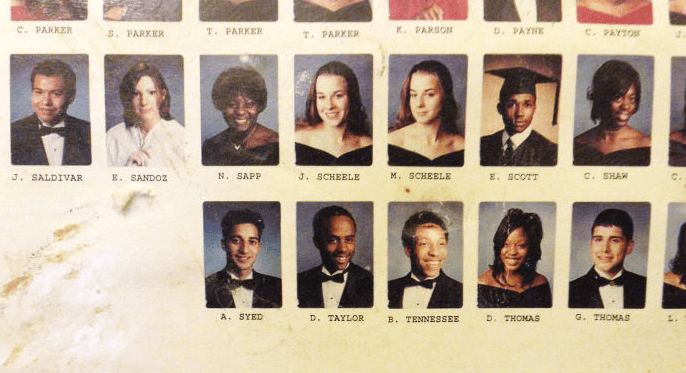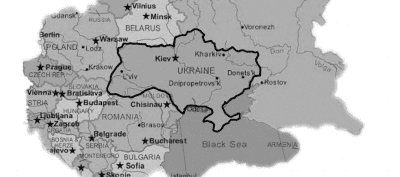Serial Recap: To Be Suspected, Episode 9


photo via Serial
One of the most interesting things about following Serial is that a lot of the action takes place off stage. This isn’t just true in the podcast itself, where all of the crucial events took place over a decade ago and some of the most important characters are never heard from—Jay and the family of the victim, Hae Min Lee, most obviously. A listener often feels like she’s piecing together a mystery with imperfect information from people who don’t really want to participate (this is, of course, also how actual mysteries are solved by actual detectives). This carries over into the real world, too. Many of the most interesting developments in the show take place completely outside of the podcast.
This week had two big bombshells. First, someone identifying as Hae’s brother popped up on Reddit in a post he titled, “I am Hae’s brother – Do not AMA,” a twist on Reddit’s popular Ask Me Anything (AMA) series; he said he would not be answering questions or replying to comments. When this went up late on Monday night, the poster (who’d probably wisely made a stand-alone screen name, brotherofhae, for the post) included images of Facebook chats he’d had with Serial producers Sarah Koenig and Dana Chivvis as evidence of his identity. He’d not noticed that these included their phone numbers, so they were pulled down by early Tuesday morning (and I did not personally see them, though the general impression is that they were genuine).
In the somewhat rambling post, brotherofhae says that he’s a fan of Serial. “Although I do not like the fact that SK pick our story to cover, she is an awesome narrator/ writer/ investigator,” he writes. Mostly, he seems to be writing to rein in some of the hysteria around the show. “TO ME ITS REAL LIFE,” he writes. He continues, (all sic):
“To you listeners, its another murder mystery, crime drama, another episode of CSI. You weren’t there to see your mom crying every night, having a heartattck when she got the new that the body was found, and going to court almost everyday for a year seeing your mom weeping,crying and fainting.”
These are points with which I very much agree. Serial obsessives can definitely get so lost in arcana that they lose a grip on reality. These are just a bunch of high school kids we’re talking about, not cartoon villains. I’ve spoken with perfectly rational adults who talk about Adnan, a 17-year-old kid at the time of the murder, like he’s Kaiser Soze. They seem to think that whatever devious plot they’re personally capable of dreaming up in their drawing room – well, maybe that’s what he did. Maybe. But probably not.
The other big story this week was a debate in the media about the show itself, including some accusations that white privilege influences Koenig’s investigation and the show as a whole. Writing in The Awl, Jay Caspian Kang looks at the ways Koenig lumps Korean immigrant culture and Muslim culture together under one umbrella of immigrant otherness in “Serial and White Reporter Privilege.” At Buzzfeed, Julia Carrie Wong disagrees with Koenig’s depiction of the jury’s possible racial bias in a piece titled, “The Problem with Serial and the Model Minority Myth.”
While both these pieces certainly raise interesting points in the abstract—white privilege is certainly real, and it’s hard to unpack all of its effects, especially for white people—their specific changes don’t hold up under scrutiny and, I think, reflect a facile or willfully obtuse understanding of the show. Honestly, I hardly have the emotional energy to recount and refute their arguments in detail. Luckily I don’t really need to, as Lindsay Beyerstein does a fantastic job of both over at The New York Observer.
I bring all of this up because it’s been seeping into the show. This week, we open with Koenig giving us three real-time updates: people who’ve contacted her since the show started airing, recent conversations she’s been having about the case, and more. If Serial were 60 Minutes, Koenig would be giving us these updates from a chair in a black void before throwing to the taped segment. Their tenor, moreover, is as much like obsessive fans arguing about the show as it is like the show itself (if that makes sense?).
First, we hear from Laura, who was friends with Adnan, Jay, and Hae in high school. She swears to Koenig that there was no pay phone near the fateful Best Buy that Jay eventually settled on as the location of the murder. Jay claimed, if you remember, that it was from a pay phone at Best Buy that Adnan called him to say that Hae was dead and Jay had to come collect him: “Come and get me, I’m at Best Buy,” was what he said at trial. Jay even drew a map for the cops of where the pay phone was located. How is Laura so sure it wasn’t there?
“I used to, I don’t know, steal CDs from there all the time, so I was pretty aware of what was around,” she tells Koenig, in perhaps the most amazingly pathos-packed statement of late 1990s suburban teenage life ever uttered. She was stealing from the store, her argument goes, so she made an intimate study of everything about it.
If there were no phone at the Best Buy, it would have been hard for Adnan to call Jay from there. Further, this call’s time—2:36pm—established the prosecution’s entire chronology of the crime. We know Hae was dead by 2:36 because of this call. Speaking of 2:36, Koenig introduces us to another woman, named Summer, who helped with Woodlawn’s wrestling team alongside Hae. The wrestling team had an away game the afternoon of Hae’s disappearance, Summer tells us. She remembers having an argument with Hae, who had more experience doing the things wrestling team helpers do (scoring matches is the main one we hear about), because she’d met Summer in the gym after school to say she wouldn’t be getting on the bus to the match, but would drive herself there later.
“I was giving her hell,” Summer said, “because I was telling her, I don’t know what I’m doing. I needed her.” This conversation, Summer says, definitely occurred after 2:30, or even 2:45. If you believe Summer, which Koenig says she does, this means there’s no way Hae could have been dead by 2:36. Even if you’re generous to Jay, and say, maybe the 2:36 call was not the “come get me” call, maybe it was the next call, at 3:15pm—and that Adnan made it from a different location than Best Buy—this totally screws with the prosecution’s timeline and makes the state’s version of the crime increasingly doubtful. “I’m done considering that it’s true, this 2:36 thing,” Koenig says.
There’s also another update, which explains an incident from several episodes ago. Jay and Adnan, the story goes, showed up at a mutual sort-of-friend’s house on the night of the murder to smoke weed (Koenig calls her Cathy, which is not her real name). Adnan spent the whole time acting strangely and not saying much (also known as “being high”) before getting a phone call which seemed to upset him, saying things like “Why? They’re gonna come talk to me! What am I supposed to say?” The implication was that Adnan had gotten a call from some mystery co-conspirator, warning him that the cops were about to contact him. Koenig’s done some additional legwork, and it turns out this call was likely from Hae’s friend Aisha. She remembers calling Adnan after the police called her; she’d suggested that they call him, too, and she’d just called him to let him know. Adnan remembers being very high, not knowing what to say, and being worried that the police might somehow find the weed in his car.
Speaking of this! Adnan makes a very telling statement later in the episode, which is called “To Be Suspected” and mainly focuses on Adnan’s life during and since the trial, and how it feels to have all of your friends believe you could be a calculating murderer (spoiler alert: pretty shitty!). He’s talking about his first interview with the police, which happened at home. During the interview, which was just two days before his arrest, the police very reasonably asked him about his relationship with Hae. He spoke softly the entire time, ashamed and worried that his father, who was sitting right next to him, would be angry with him about his secret relationship a girl. All this while the police were building a murder case against him. “It’s like, you may as well say I’m worried about the leak in the living room, but there’s an earthquake coming in the next two minutes. But I’m worried about my father being upset about all of this, and my mother, as opposed to… I had no idea whatsoever that this murder charge would be coming.”
Not only is this touching and so sad given how the next 15 years of Adnan’s life have gone, it’s completely relatable. This is how people are. People dying of cancer in the hospital are worried their lips are dry, or that they look bad. It’s because we can understand little things, and we know how to fix them. Our mind can comprehend them. Big things—death, how long “life in prison” really is, going to jail for a crime you didn’t commit—these are too big to fit in your brain.
Serial is taking next week off for Thanksgiving, and I’d feel like a jerk if I didn’t pass along their request that you donate to them if you’d like a second season.
You might also like 




















